THIS EVENT IS COMPLETED

Beijing Expo Center featuring Ibn Al-Haytham as the mascot to the China Science Festival
Ibn Al-Haytham mascot and anchor attraction at the 2015 China Science Festival, Beijing
Beijing, 17th July, 2015: China’s largest science festival launched today with the new production “1001 Inventions and the World of Ibn Al-Haytham” as an anchor exhibition. 11th century Arab scholar Ibn al-Haytham was also unveiled as the official mascot of the 2015 China Science Festival.
The science festival this year is themed on “Light and Colour” and 1001 Inventions, the British based educational organisation, participates as a Founding Partner of the United Nations proclaimed International Year of Light and Light-Based Technologies (IYL2015).
The 500 square metre themed Ibn Al-Haytham zone brings to life the inspiring story of Ibn al-Haytham and introduces his contributions to early light science in the context of what is considered the golden age of science from Muslim Civilisation.

Giant fully functioning camera obscura themed as Ibn Al-Haytham’s turban and produced by 1001 Inventions in China Science Festival
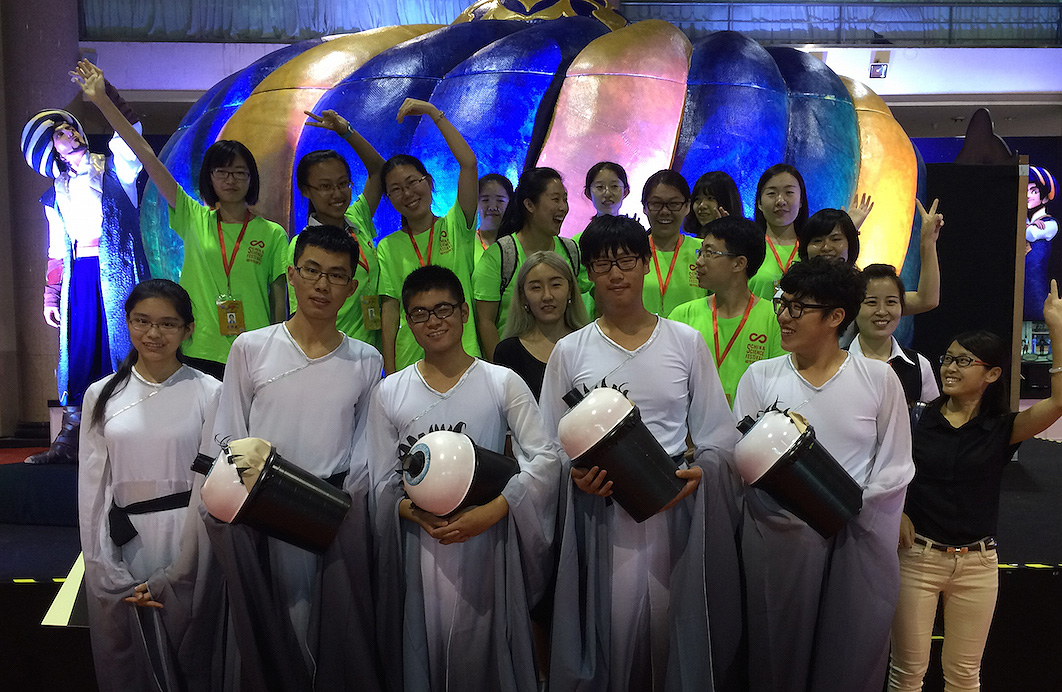
1001 Inventions Team Beijing
Eye-Scura – Based on Justin Quinnell’s camera obscura design
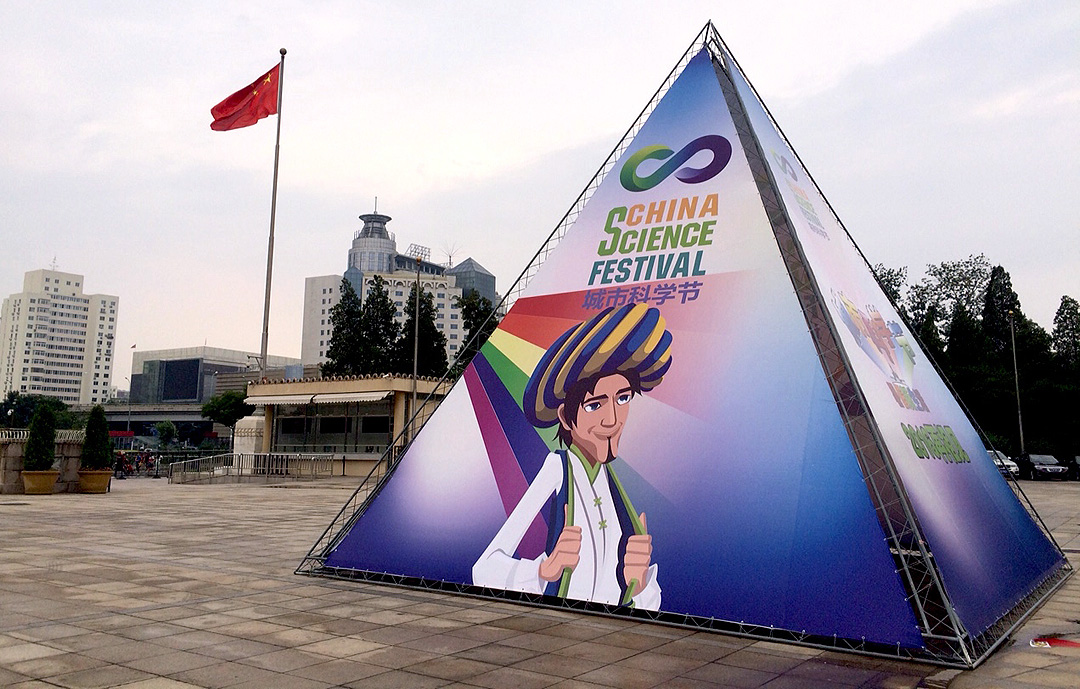
Visitors will be introduced to Ibn al-Haytham and his contributions to the understanding of vision, optics and light through engaging learning experiences including a giant fully functioning camera obscura built as a huge turban.
A cinema area screens a new 1001 Inventions short film starring the late legendary actor Omar Sharif. Also live dance performances and hands-on demonstrations will engage the public in celebrating the 1,000-year anniversary of Ibn al-Haytham’s seminal work on optics Kitab al-Manazir (The Book of Optics) and raise awareness of light science and its solutions for humanity.
Speaking at the opening ceremony, Jane Geng, Director of Science Beijing Network said:
 |
We are very pleased to partner with 1001 Inventions and bring to China the exciting “1001 Inventions and the World of Ibn Al-Haytham” global campaign. Celebrating the International Year of Light and the renowned 11th century scientist will raise awareness on the developments of early optics and encourage young people to study science while learning about other cultures and civilisations” |
Producer and Director of 1001 Inventions, Ahmed Salim said:
 |
We are delighted to bring our Ibn Al-Haytham educational campaign to China, a country with scientific heritage and breakthroughs that greatly helped the Muslim Civilisation, in which Ibn al-Haytham flourished, and had a lasting impact on the way we live our lives today. We hope that our involvement at the festival will lead us to further engagements in China providing exciting learning experiences to raise public awareness on the importance of science while promoting intercultural dialogue, mutual understanding and social cohesion.” |
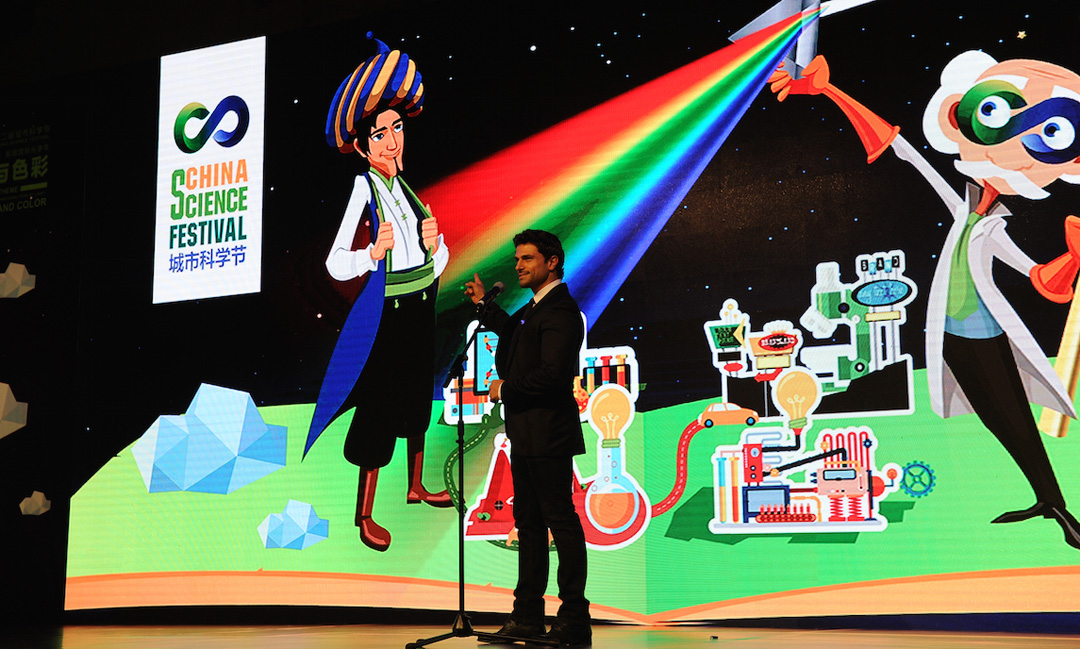
Ahmed Salim, Producer and Director of 1001 Inventions,
delivering keynote opening speech at China’s largest science festival
The China Science Festival will be open daily, from the 17th of July to the 2nd of August, at the Beijing Exhibition Center from 9:30am to 5:30pm. Further information can be found at www.chinasciencefestival.com including ticket prices, location and details of special events taking place to complement the festival.
The global campaign ‘1001 Inventions and the World of Ibn Al-Haytham’ is produced by the United Kingdom based organization 1001 Inventions and the King Abdulaziz Center for World Culture in partnership withUNESCO and the International Year of Light. The campaign was launched in January 2015 at the Paris headquarters of UNESCO.
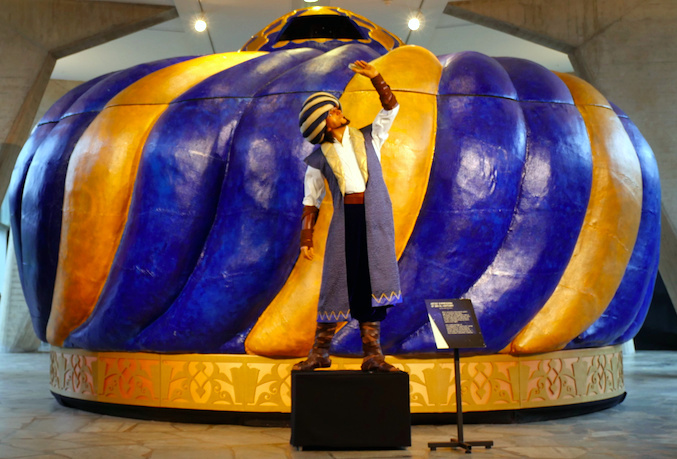
Giant fully functioning camera obscura themed as Ibn Al-Haytham’s turban and produced by 1001 Inventions will be showcased at the 2015 China Science Festival
About Ibn Al-Haytham
Al-Hasan Ibn al-Haytham (known in the West by the Latinised form of his first name, initially “Alhacen” and later “Alhazen”) was born about 1,000 years ago in Basra, which is now in Iraq. This was the height of the Golden Age of Muslim Civilisation — a creative era that spanned a thousand years from the 7th century onwards, from Spain to China, bringing forth many far-reaching advances in science, technology and medicine by men and women of different faiths and cultures. Building upon knowledge of ancient civilisations, their contributions added significant and crucial value to the accumulation of scientific knowledge shaping our homes, schools, hospitals, towns and the way we trade, travel and understand the universe today.
Ibn al-Haytham was a pioneering scientific thinker who made important contributions to the understanding of vision, optics and light. His methodology of investigation, in particular using experiment to verify theory, shows certain similarities to what later became known as the modern scientific method.
To explore the nature of light and vision, Ibn al-Haytham used a dark chamber he called “Albeit Almuzlim,” translated into Latin as “camera obscura” – the device that forms the basis of photography. He observed that light coming through a tiny hole travelled in straight lines and projected an image onto the opposite wall.
Based on such experimentation, Ibn al-Haytham concluded that vision is accomplished by rays coming from external luminous sources and entering the eye, rather than through rays emitted from the eye as was commonly believed.
Ibn al-Haytham based his theories on the work of the Greek physician Galen, who had provided a detailed description of the eye and the optic pathways. However, Ibn al-Haytham subscribed to a method of empirical analysis to accompany theoretical postulates that is similar in certain ways to the scientific method we know today.
When Ibn al-Haytham’s Book of Optics (Kitab al-Manzir) was translated into Latin (De Aspectibus), its impact rippled out across the whole world. Both his optical discoveries, and the fact that they had been validated using hands-on experiments, would influence those whom came after him for centuries. Today, many consider him a pivotal figure in the history of optics and the “Father of modern Optics”.
Further information can be found at www.ibnalhaytham.com
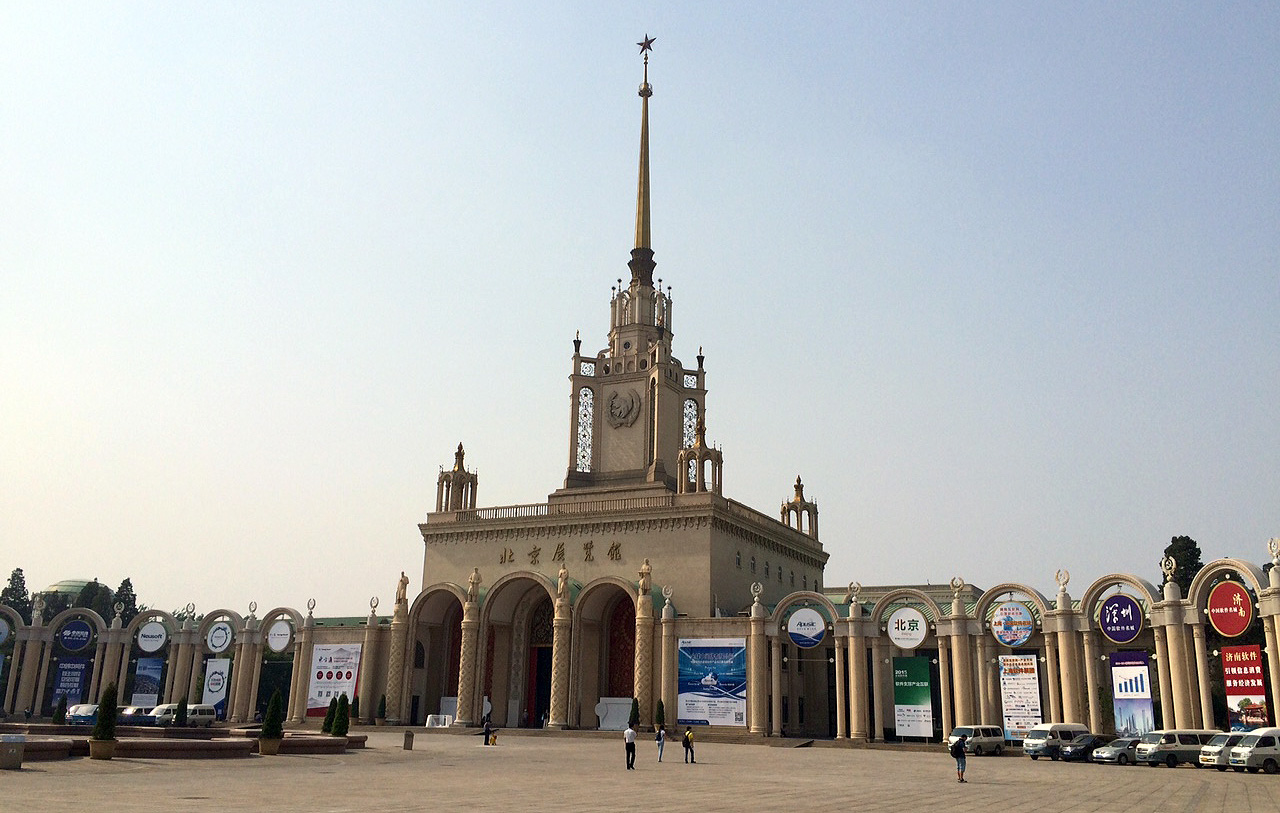
Beijing Exhibition Center
About the China Science Festival
From July 17 to August 2, 2015, the 2nd China Science Festival will take place in Beijing. The 2015 China Science Festival will have the theme of “Light and Color” to celebrate the United Nations proclaimed International Year of Light and Light-based Technologies (IYL 2015).
Under the direction of the China Association for Science and Technology (CAST) and with the support of Xicheng District People’s Government, Children and Youth Science Center of CAST, China Association of Children’s Science Instructors and the Beijing Tourism Group, the festival will exhibit a fantastic world of light to the public and highlight the importance of light-based technologies in promoting sustainable development.
Government institutions, non-profit organizations, research institutes, science and technology enterprises, popular science venues, universities, primary and secondary schools, science education and training institutions and science and education products-oriented enterprises will join the celebration to create an unparalleled interactive science experience.
Further information can be found at www.chinasciencefestival.com
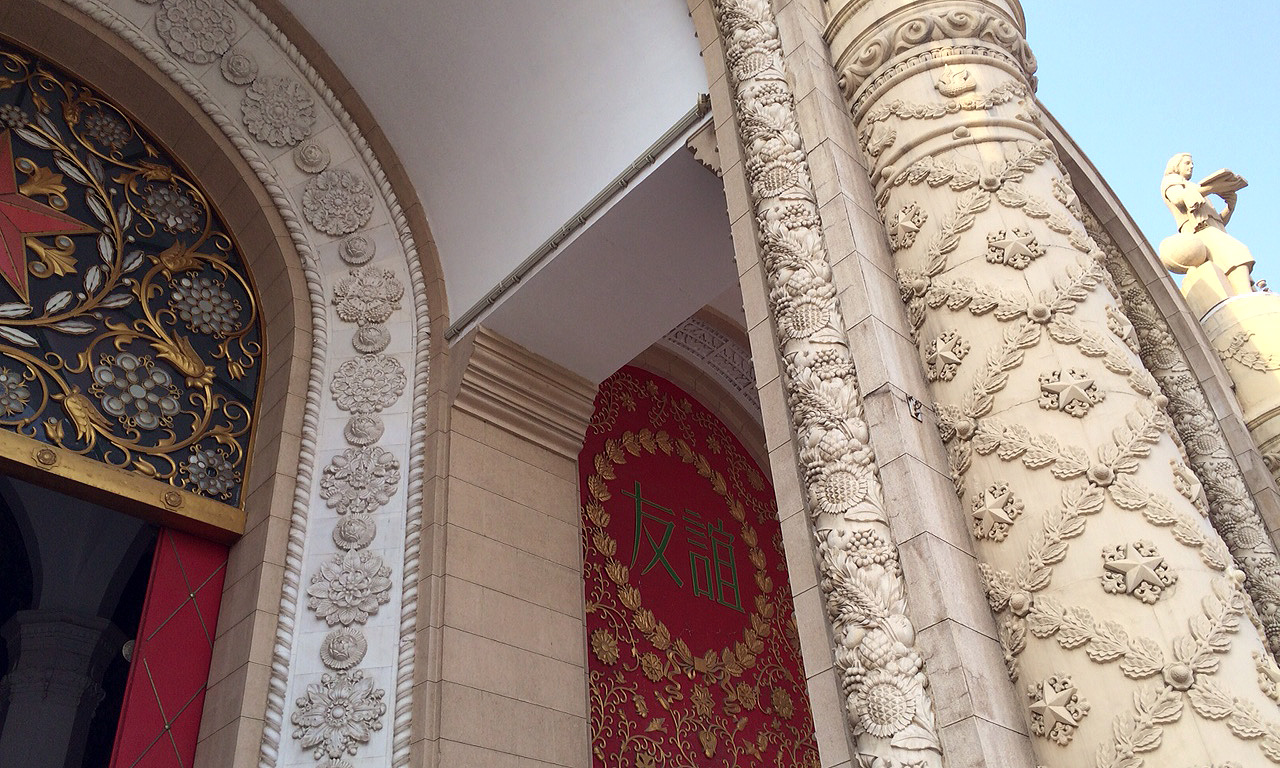
About International Year of Light (IYL 2015)
The International Year of Light and Light-Based Technologies (IYL 2015) is a global initiative adopted by the United Nations (A/RES/68/221) to raise awareness of how optical technologies promote sustainable development and provide solutions to worldwide challenges in energy, education, agriculture, communications and health.
With UNESCO as lead agency, IYL 2015 programs will promote improved public and political understanding of the central role of light in the modern world while also celebrating noteworthy anniversaries in 2015—from the first studies of optics 1,000 years ago to discoveries in optical communications that power the Internet today. The IYL Global Secretariat is located at the Abdus Salam International Centre of Theoretical Physics (ICTP).
In addition to 1001 Inventions, the Founding Partners of IYL 2015 are the American Institute of Physics (AIP), the American Physical Society (APS), the Deutsche Physikalische Gesellschaft (DPG), the European Physical Society (EPS), the Abdus Salam International Centre of Theoretical Physics (ICTP), the IEEE Photonics Society (IPS), the Institute of Physics (IOP), Light: Science and Applications, the lightsources.org International Network, The Optical Society (OSA) and the International Society for Optics and Photonics (SPIE). Patron Sponsors include Bosca, the International Association of Lighting Designers (IALD), Royal Philips Lighting, Thorlabs and UL.
Further information can be found at www.light2015.org
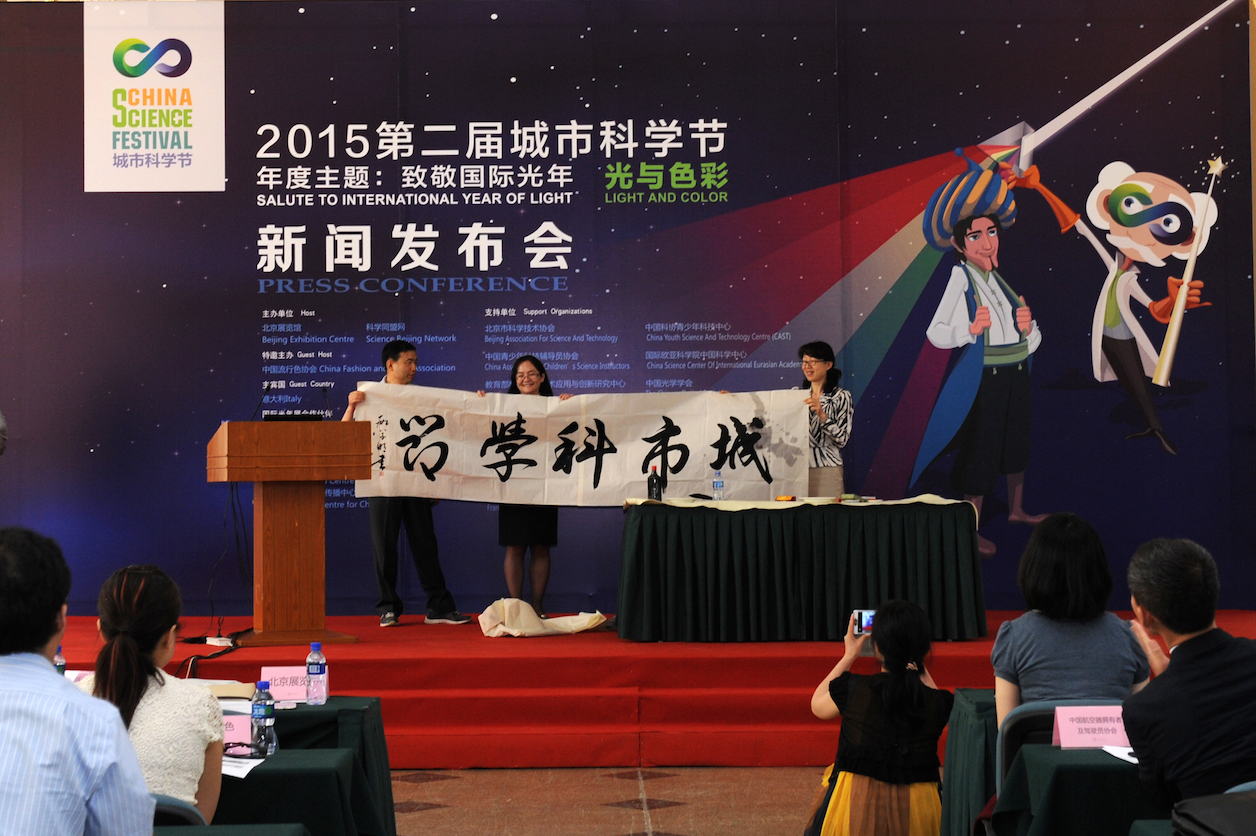
About 1001 Inventions
1001 Inventions is an award-winning, British based organisation that creates international educational campaigns and engaging transmedia productions aiming to raise awareness of the contributions to science, technology and culture from the Golden Age of Muslim Civilisation.
For one thousand years from the 7th century onwards, inspirational men and women, of different faiths and cultures, built upon knowledge of ancient civilisations, making discoveries that have had a huge and often underappreciated impact on our world. In an area that spread from Spain to China, this Golden Age of Muslim Civilisation saw fascinating advancements in science and technology that helped pave the way for the European Renaissance.
Over the last decade, 1001 Inventions has engaged with over 200 million people across the globe, with educational campaigns in cities such as in London, Istanbul, New York, Washington DC, Los Angeles, Kuala Lumpur, Abu Dhabi and Jeddah.
1001 Inventions works with a network of international partners and leading academics, and through its academic partner FSTC (UK), to produce world-class experiences, interactive exhibits, feature films, live shows, books and classroom learning materials that are being used by hundreds of thousands of educators around the world.
Further information can be found at www.1001inventions.com
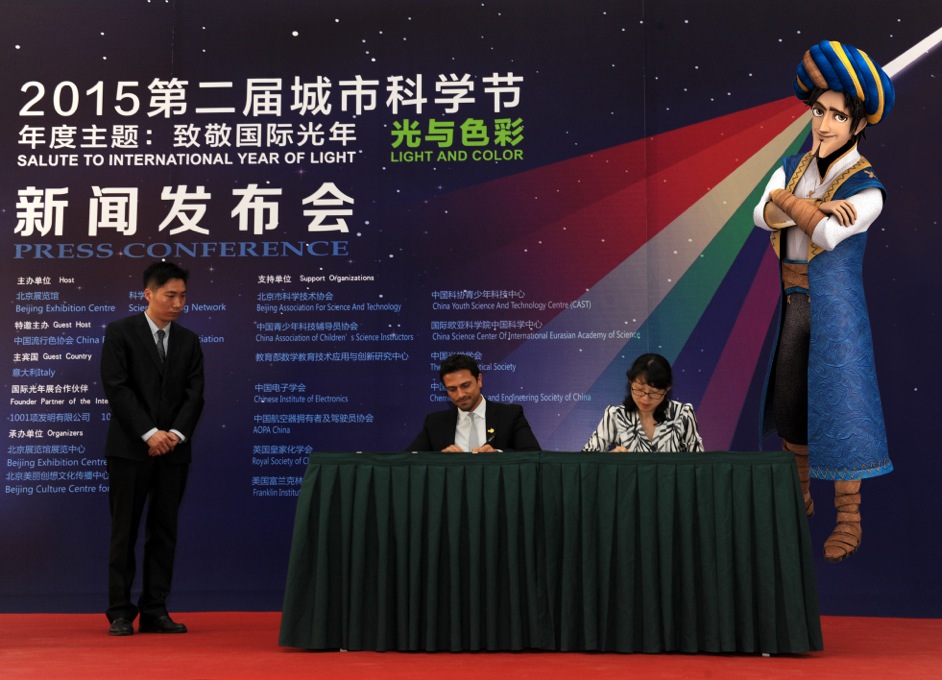
About ‘1001 Inventions and The World of Ibn Al-Haytham’
Produced by 1001 Inventions and King Abdul Aziz Center for World Culture in partnership with UNESCO and ‘The International Year of Light 2015’ to celebrate the scientific legacy and achievements of the remarkable 11th century scientist Ibn al-Haytham.
With the life and work of Ibn al-Haytham as an inspiration, the campaign aims to deliver a series of international events, public outreach campaigns and engaging learning experiences to incite inquisitiveness and curiosity and encourage young people to study and pursue science careers while promoting intercultural understanding, entrepreneurial and scientific thinking.
Further information can be found at www.ibnalhaytham.com
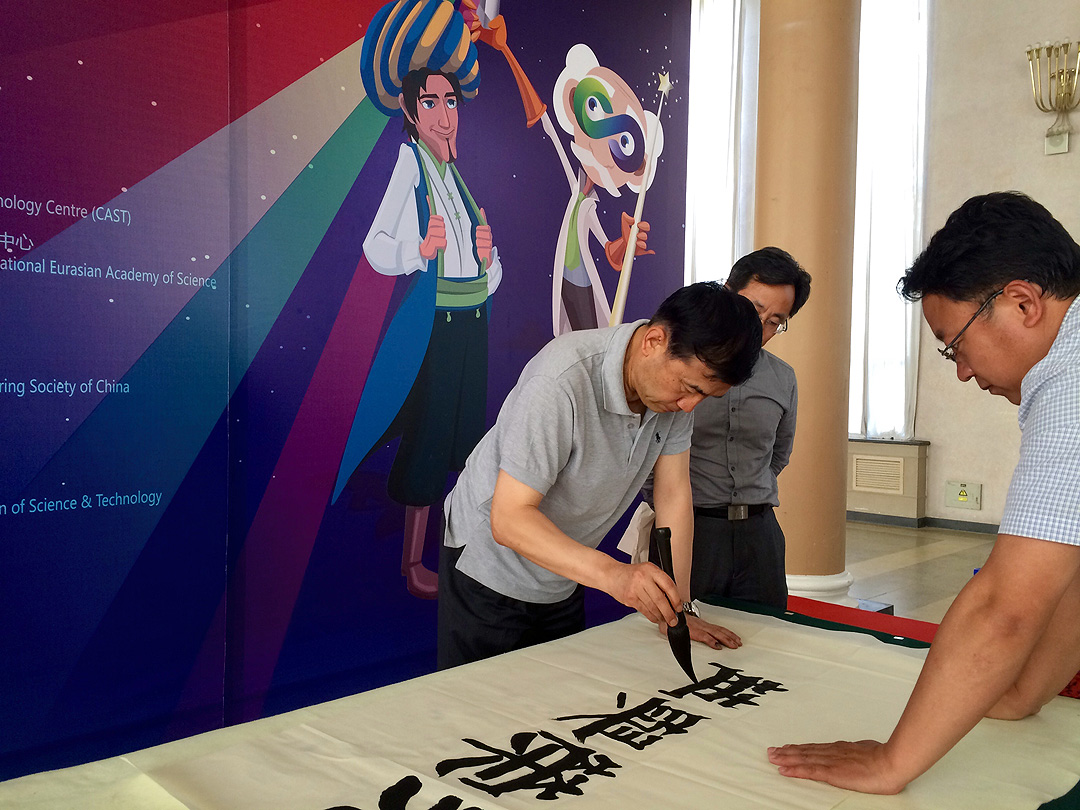
About the King Abdulaziz Center for World Culture
The King Abdulaziz Center for World Culture is a pioneering undertaking by Saudi Aramco, the state-owned oil company of the Kingdom of Saudi Arabia. Created to make a tangible and positive impact on human development by inspiring a passion for knowledge, creativity and cross-cultural engagement, the Center is scheduled to open in 2016 in the Kingdom’s Eastern Province. It will house a library, archives, a lifelong learning center, youth enrichment and innovation programs, a four-gallery museum and a children’s museum. The Center will offer a wide variety of permanent and visiting exhibitions, live events and multimedia venues.
Further information can be found at www.kingabdulazizcenter.com
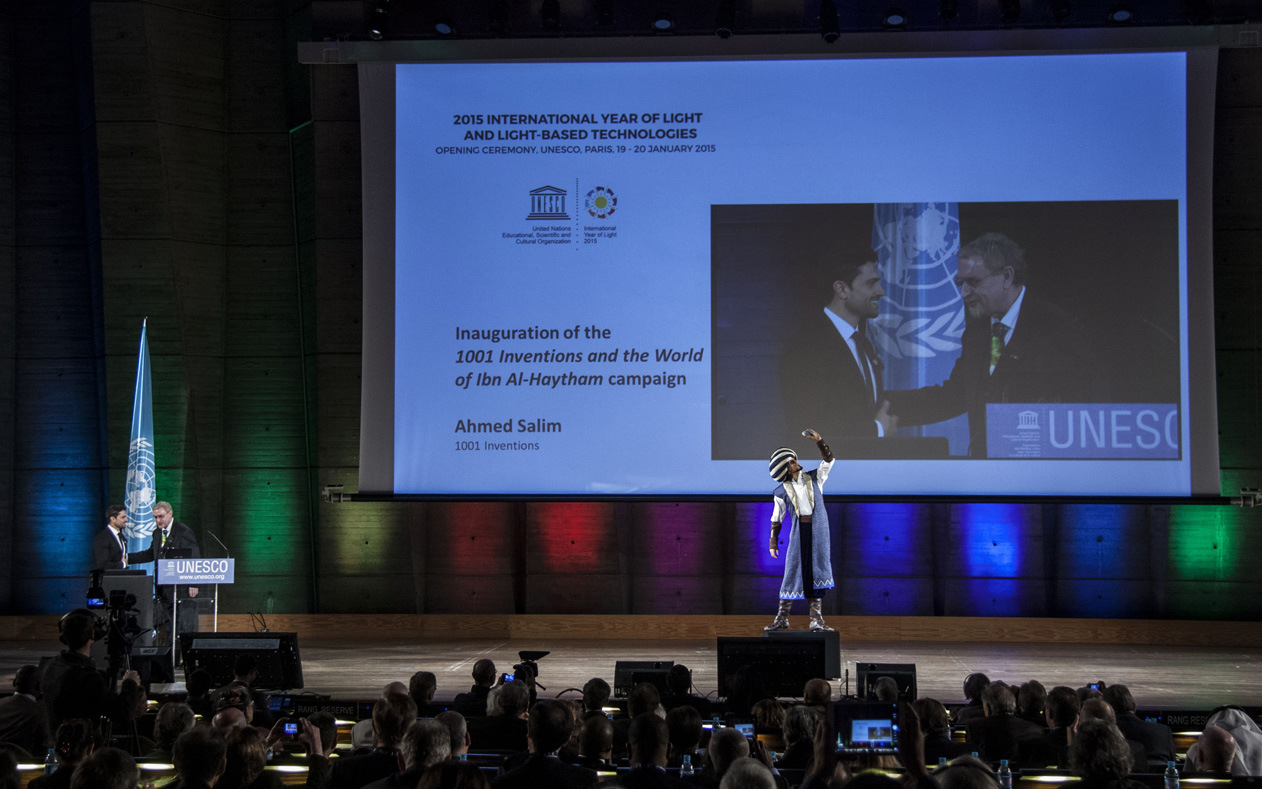 1001 Inventions and the World of Ibn Al-Haytham launches at UNESCO – © UNESCO/ Pilar Chiang-Loo
1001 Inventions and the World of Ibn Al-Haytham launches at UNESCO – © UNESCO/ Pilar Chiang-Loo



